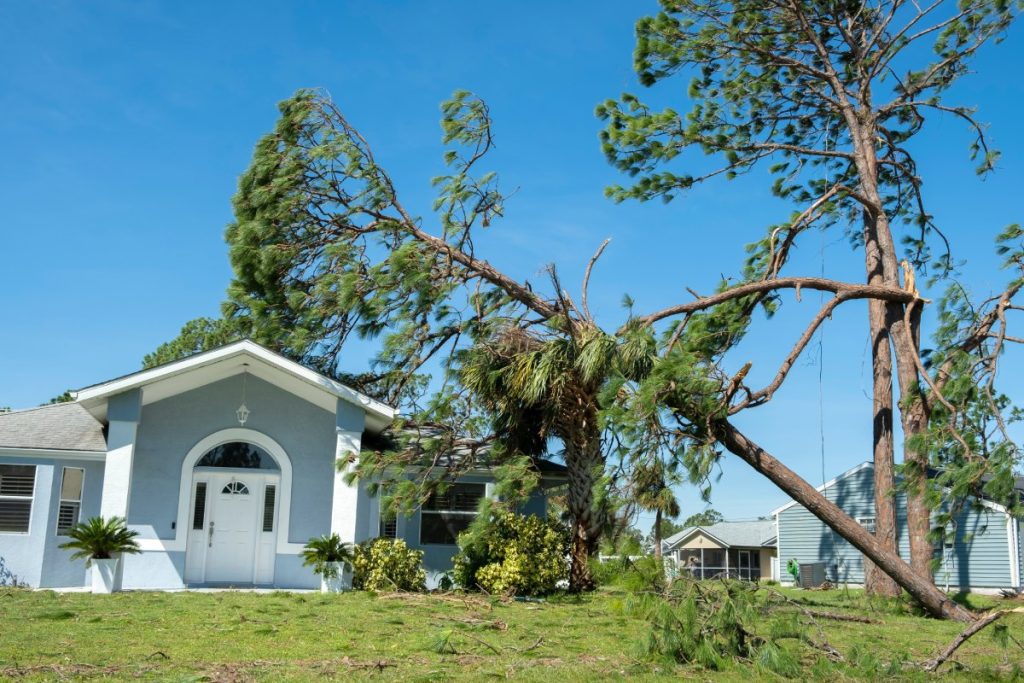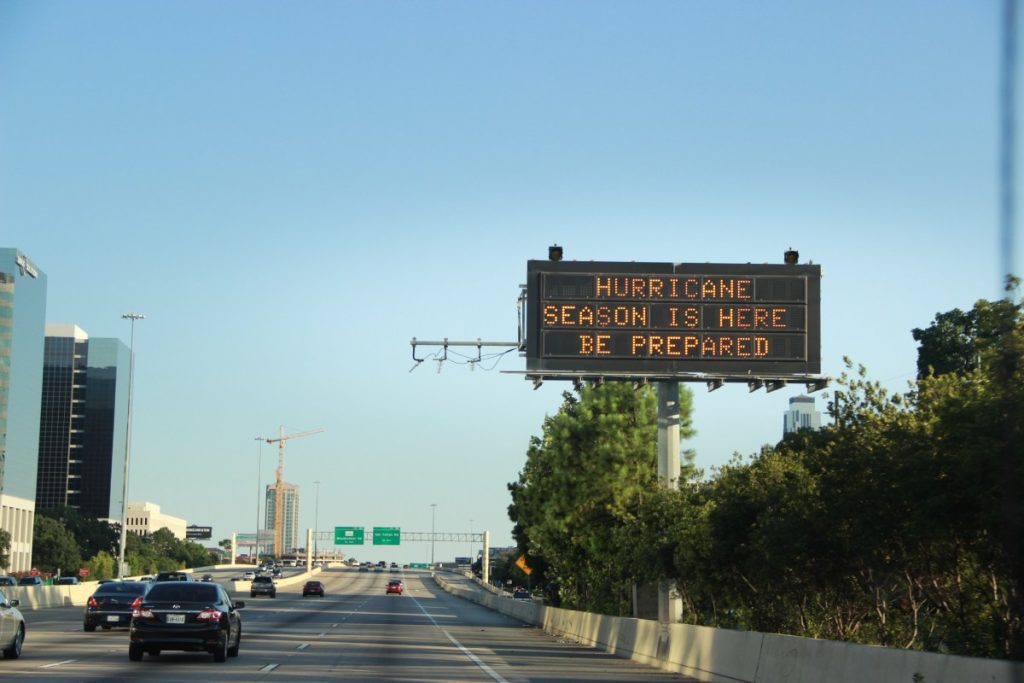The Florida Hurricane Insurance Claims Process (Timelines and a Step-by-Step Guide)
Floridians know all too well the devastation hurricanes can leave in their wake. From cracked walls to flooded basements, property damage after a storm is all too common in the Sunshine State. But what about filing a hurricane insurance claim to recover those losses? That can feel like another disaster in its own right.
With complex insurance policies, specific deductibles, and the possibility of claim denials, maneuvering your way through the Florida hurricane insurance claims process can be overwhelming. That’s why we’ve put together this comprehensive guide. By the end of this blog, you’ll know more about how to file a claim, what your homeowner’s insurance policy covers, and where to turn for support if issues arise during hurricane season.
Filing Property Insurance Claims After a Hurricane
Finding reliable insurance in Florida’s volatile market has been a growing challenge. Major insurance providers, such as Allstate and State Farm, have scaled back operations throughout the state, leaving Florida homeowners to rely on state-backed options or niche carriers.
The increasing financial strain brought by recent storms like Hurricane Ian, Milton, and Helene this past hurricane season has forced families to seek new insurers amidst rising insurance rates. According to the Insurance Information Institute, Florida homeowners currently face some of the highest insurance costs in the nation.
Consulting insurance law experts, like the attorneys at Merlin Law Group, can help you find fair and sustainable coverage solutions for your Florida home insurance needs.
Is Hurricane Insurance Required in Florida?
While coverage specifically labeled for hurricanes isn’t legally required by the state of Florida, most mortgage lenders require homeowners to carry windstorm coverage as part of their homeowners’ policy. If you live in a high-risk flood zone, you’ll also need separate flood insurance through the National Flood Insurance Program (NFIP) or private flood insurance providers.
Types of Insurance Coverages Available in Florida
Homeowners insurance typically covers damage to your home’s structure from the powerful wind, rain, and hail in a hurricane. However, insurance companies in every coastal state from Maine to Texas have separate deductibles—or sometimes even exclusions—for windstorms and hurricanes, so it’s essential to check your policy if you live in a high-risk coastal area.
Here’s a breakdown of the primary coverages available to Florida homeowners, along with what they protect against.
1. Standard Homeowners Insurance Policies
Most homeowners insurance policies include windstorm coverage, which protects against damage caused by high winds, tornadoes, and flying debris. This includes broken windows, roof damage, and structural harm caused by flying objects during hurricane conditions.
However, these policies typically exclude flood, rain, and water damage—even though hurricanes and tropical storms consistently bring heavy rains and storm surges to parts of Florida.
2. Flood Insurance
Flood insurance, which is mandatory for properties with mortgages in FEMA-designated high-risk zones, must often be purchased separately through FEMA’s National Flood Insurance Program (NFIP) or through private insurers. This policy covers flood-related damages, such as rising water levels and storm surge impacts that affect many areas, including Miami, Tampa, and other coastal Florida communities.
3. Separate Hurricane Deductibles
Florida enforces hurricane-specific deductibles, which are separate from general policy deductibles. How does the hurricane deductible work? Hurricane deductibles are usually calculated as a percentage (ranging from 2% to 10%) of your home’s insured value, meaning you could face significant out-of-pocket costs before your insurance provider steps in.
For example, a $300,000 home with a 5% hurricane deductible requires you to pay the first $15,000 of hurricane-related damage.
When Does the Hurricane Deductible Apply?
According to Florida law, hurricane deductibles apply to damage that occurs from the time a hurricane watch or warning is issued by the National Weather Service for any part of Florida, up to 72 hours after such a watch or warning ends, and anytime hurricane conditions exist throughout the state. The National Hurricane Center coordinates these warnings with local authorities.
Important: The hurricane deductible applies only once during a hurricane season, regardless of how many storms affect your property.
A Step-by-Step Guide to the Florida Hurricane Insurance Claims Process
Timeline: Immediate Response (First 24-72 Hours)
1. Document damages thoroughly with photos, receipts, and repair estimates.
Comprehensive documentation of storm damage is vital to filing a successful property insurance claim. It establishes the extent of your loss and creates a solid foundation for the insurance claims process.
How To Do It
- Use your smartphone or camera to take photos and videos of the damage. Capture the damage from multiple angles, both inside and outside your property.
- Record pre-storm comparisons. Photos taken before the storm, such as home appraisals or prior inspections, will serve as powerful evidence of the extent of the new damage.
- Create inventory lists. If personal belongings are damaged, list the items and their purchase receipts, if available. Note the estimated costs for repairs, where applicable.
- Don’t rush cleanup; document everything before removing debris unless safety hazards require otherwise. Only perform essential temporary repairs, like covering exposed areas to prevent further damage. Keep receipts for these interim repairs, as insurers often reimburse these costs.
Example: A resident of Fort Myers, whose roof shingles were torn off by Hurricane Ian, used before-and-after images to secure a higher settlement from their insurer, thanks to clear visual evidence of structural differences.
2. Understand what viable property insurance damage looks like.
Not all damage is covered under your homeowner’s insurance policy. Knowing whether your insurance company will recognize your claim as “viable” could save you time and stress.
Common Types of Viable Hurricane Damage
- Wind Damage: This includes damaged roofs, broken windows, and siding ripped off by gale-force winds.
- Flood Damage: Remember that most traditional homeowner’s insurance policies don’t cover flooding unless you hold a separate flood insurance policy through FEMA or a private provider.
- Structural Damage: Check for cracks or shifts in the foundation or walls that may have been caused by storm surges.
Review your insurance coverage policy for specific exclusions. For example, “anti-concurrent clauses” may deny your claim if uncovered flood damage worsens damage from a covered loss, such as wind. Ensure your policy includes “Replacement Cost Coverage” over “Actual Cash Value” to avoid significant out-of-pocket gaps in repairs.
Timeline: First Week After Storm
3. Notify your insurer promptly, ensuring you meet any claim deadlines.
Time is of the essence when reporting hurricane damage to insurance companies. Insurers often have strict timelines for submitting insurance claims. In Florida, you typically have one year to file from the date of loss for a claim, and 18 months from the date of loss for a supplemental claim.
How To Do It
- Locate your policy’s “Notice of Loss” requirements to confirm any filing deadlines.
- Contact your insurance company via the claims hotline or app and provide an initial notification of the incident. Clearly state your policy number and the damages caused by the storm.
- Request a claim number, which will allow you to track your case.
- Keep communication records—such as emails, letters, or notes from phone calls—to document every interaction with your insurer.
- Take note of deadlines for submitting supplemental materials (e.g., photos, estimates, or Proof of Loss documents).
- Ask if your insurer will cover temporary accommodations or relocation costs if your property has been rendered uninhabitable.
Example: Businesses in the Florida Panhandle recovering from Hurricane Michael’s aftermath secured better claims results when they immediately submitted storm impacts and sent follow-ups with repair estimates days later.
Timeline: 1-4 Weeks After Filing
4. Work with an adjuster to assess your property and negotiate the settlement.
An adjuster determines the value of your settlement. Overlooking a detail during their inspection could result in an undervalued claim.
How To Do It
- When the adjuster inspects your personal property, walk with them. Point out every area of damage, including less obvious impacts like leaks or mold.
- Verify that they document all damages. If something is missed, follow up with an email listing what was overlooked.
- Consider hiring a public adjuster or a damage expert, such as a general contractor, to work alongside the insurance adjuster. Public adjusters advocate on your behalf and can often capture damages that insurers miss.
Example: After Hurricane Harvey, a Texas homeowner secured tens of thousands of dollars in additional roof repair costs after confirming that the adjuster had failed to record the damaged roof flashing and gutters.
Timeline: 30-90 Days After Filing
5. Review the coverage decision and next steps.
Once your insurance company provides its coverage determination, ensure you thoroughly review the following details:
- Approval vs. Denial: If approved, check whether the payment covers the full scope of repairs and replacement.
- Denial Review: If denied, insurers must justify their decision and cite specific sections of your policy to substantiate it.
If issues arise:
- File an appeal if you disagree with their assessment.
- Consider legal representation. If your claim is unjustly delayed, underpaid, or denied, consult an insurance litigation attorney or contact a trusted firm like Merlin Law Group, which specializes in supporting policyholders and wrongful denial cases.
- Don’t cash settlement checks until you confirm the amount matches your final agreement with the insurer. Doing so could indicate acceptance of the payout.
6. Build confidence and get help!
Filing a claim can be stressful, but you don’t have to go through the process alone. Be proactive and informed, and, if necessary, seek professional assistance.
Merlin Law Group offers free consultations and has helped residents recover over $2 billion in settlements nationwide. Whether you’re facing delays, underpayment disputes, or policy coverage confusion, our expert attorneys ensure you have an advocate for your recovery.
Real-World Examples: Hurricane Insurance Claims in Florida
Successful Claim Example
Case: A Tampa homeowner’s roof sustained significant wind damage during Hurricane Ian. They thoroughly documented everything, worked closely with their adjuster, and received $45,000 for a complete roof replacement, as well as interior water damage repairs.
Key Success Factors:
- Immediate documentation of damage
- Pre-storm photos for comparison
- Detailed inventory of all damaged items
- Prompt filing within required timelines
Denied Claim Example
Case: A Miami homeowner filed a claim for water damage, assuming it was covered under their windstorm policy. The insurance company denied the claim because the damage was caused by storm surge (flooding), which required separate flood insurance through the NFIP.
Lessons Learned:
- Understanding policy exclusions is crucial
- Flood damage and wind damage are treated differently
- Multiple types of coverage may be needed for complete protection
Contact Merlin Law Group for Florida Hurricane Insurance Claim Advice
Hurricanes don’t just test the strength of your home—they test the strength of your insurance policy. At Merlin Law Group, we specialize in helping Florida residents understand their insurance options, and we fight for what you deserve in the aftermath of devastating storms.
Whether you’re dealing with claim denials, underpayments, or delays, our experienced attorneys have recovered over $2 billion for policyholders across the nation. We understand Florida’s unique insurance landscape and can help you navigate the complexities of hurricane insurance claims.
Be hurricane-ready today. Contact Merlin Law Group for expert advice on claims and coverage.
FAQs about Hurricane Insurance Claims in Florida
How Long Does an Insurance Company Have to Settle a Hurricane Claim in Florida?
Under Florida law, insurance companies must acknowledge a claim within 14 days and pay or deny the claim within 90 days, provided the policyholder has submitted all necessary documentation. This is known as the 90-day rule for insurance claims in Florida. This timeframe protects homeowners by ensuring a prompt resolution after a loss.
Why Are Insurance Companies Denying Hurricane Claims?
Insurance companies often deny hurricane claims for various reasons, including insufficient evidence provided by the homeowner, damages not covered by the policy (such as flood damage without a separate flood insurance policy), late filing of the claim, or exclusions or coverage limits specified in the insurance contract. To avoid potential denials, homeowners should carefully review their policy terms and provide thorough documentation of the damages.
What Factors Affect the Cost of Hurricane Insurance in Florida?
Key factors include:
- Location: Properties in Miami, Tampa, and other coastal areas typically pay higher premiums.
- Home value and replacement cost: More expensive homes cost more to insure.
- Hurricane deductible chosen: Lower deductibles mean higher annual premiums.
- Construction type: Mobile homes face different rates than traditional homes.
- Coverage limits: Higher coverage limits typically result in higher premium costs.
Is it Worth Getting Hurricane Insurance?
For Florida homeowners, windstorm coverage (hurricane insurance) is essential. Consider these statistics:
- Hurricane Ian caused over $112 billion in damage in Florida.
- The average hurricane insurance claim in Florida exceeds $30,000.
- Uninsured hurricane damage can lead to financial devastation.
- The cost of premiums is typically far less than the potential out-of-pocket costs for major hurricane damage.
What is the $10,000 hurricane grant in Florida?
Florida homeowners may be eligible for disaster assistance through FEMA’s Individual Assistance program. This grant can provide up to $10,000 (amounts vary by disaster) for:
- Temporary housing assistance
- Home repairs for safety and habitability
- Replacement of damaged personal property
- Other disaster-related needs
Important: This is federal disaster assistance, not insurance. You must apply separately through FEMA, typically within 60 days of a federal disaster declaration.
Can You Get Home Insurance During Hurricane Season?
Yes, you can typically get home insurance during hurricane season in Florida. However, many insurance companies implement moratoriums on new policies when a storm is approaching. It’s best to secure coverage well before hurricane season begins (June 1 – November 30).




